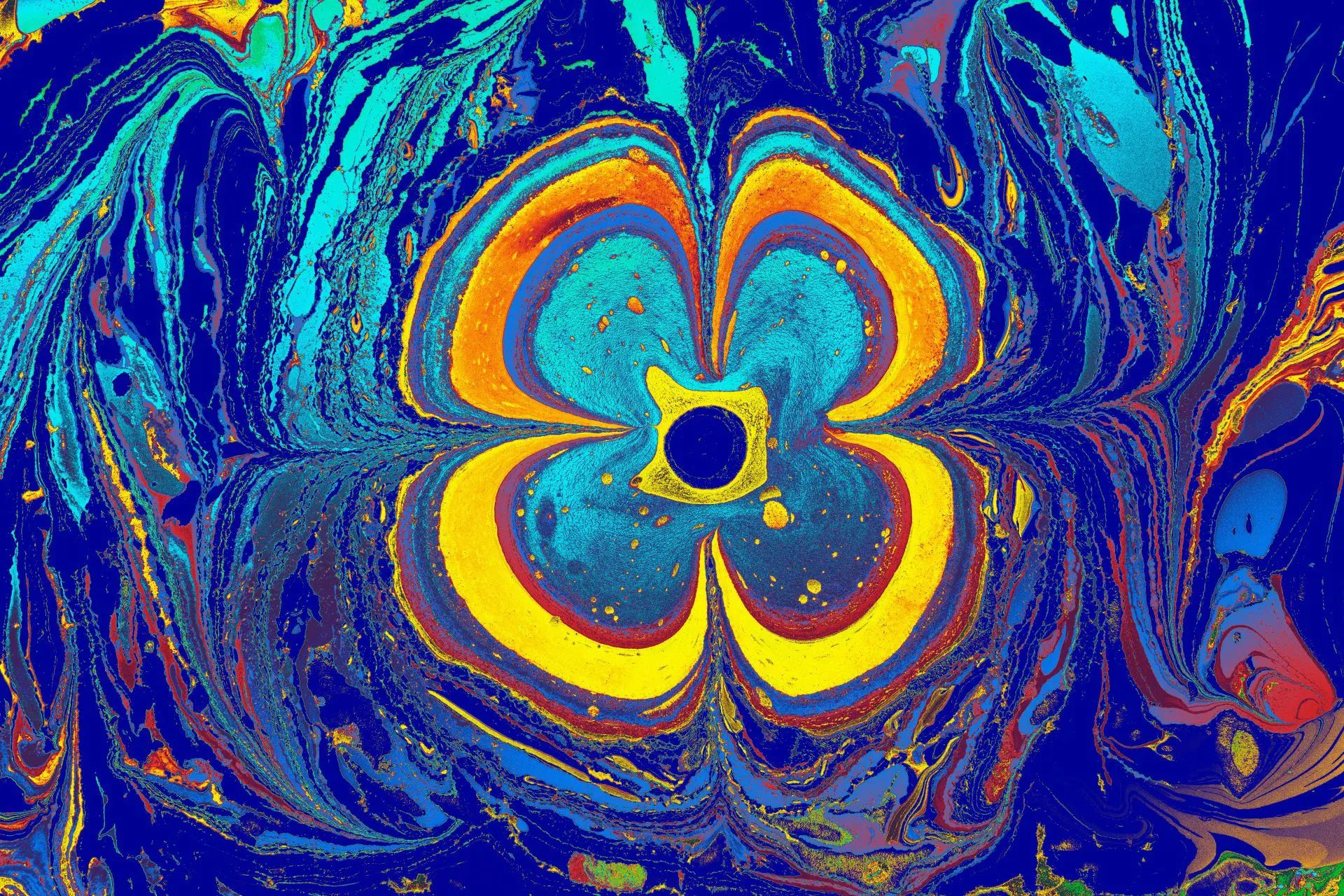What Feng Shui Means and How It Impacts Life

Looking for more amazing products? Check out our online store and explore our collection here! Happy shopping!
Before diving in, please note: This post is for informational purposes only. If you’d like to know more about how we approach topics, feel free to check out our friendly Disclaimer Page.
Hey there, amazing readers! 
We’re committed to delivering quality posts, and your support (even just sticking around despite the ads) means everything to us. So, bear with us, and thanks for helping us keep the good vibes rolling. Now, on to the fun stuff!
TRANSLATE BUTTON AT THE END OF THE ARTICLE
A Quick Overview
Feng Shui is more than just arranging furniture to make your home look good; it’s a philosophy that emphasizes harmony and balance in our living spaces.
Originating from ancient China, it understands that everything is interconnected through energy, known as "Chi." By aligning our environment with natural forces, we can enhance our lives, from improving our health and relationships to boosting our productivity.
So, let’s embark on this journey to uncover what Feng Shui really means and how it can positively impact our lives.
What Is Feng Shui? An Overview of Its Origins and Purpose
Feng Shui has been around for thousands of years, rooted in Chinese philosophy.
Its name literally translates to "wind" (feng) and "water" (shui), two essential elements that symbolize the flow of energy in nature.
This practice originated as a means to locate favorable sites for habitation and burial, emphasizing that the landscape’s energy influences our well-being.
The main goal of Feng Shui is to create spaces that promote positive energy flow.
By harnessing this energy, we can enhance various aspects of our lives, including health, wealth, and relationships.
It’s not just about aesthetics; it’s a holistic approach to life.
I remember my first encounter with Feng Shui; I was skeptical but intrigued.
After making some adjustments in my apartment, I noticed subtle but significant changes in my mood and productivity.
While traditional Feng Shui relies on complex calculations and compass readings, modern interpretations have simplified the practice.
Today, many people utilize Feng Shui principles intuitively, making it accessible to everyone.
Whether you live in a small studio or a sprawling home, Feng Shui can be adapted to fit your needs.
The Principles of Feng Shui: Understanding Energy Flow
At the core of Feng Shui lies the concept of Chi, the life force that flows through everything.
The goal is to create an environment where Chi can flow freely without obstructions.
Here are some fundamental principles to grasp:
Yin and Yang: This represents balance.
Yin is passive and soft, while Yang is active and bright.
A harmonious space incorporates both energies.
The Five Elements: Wood, Fire, Earth, Metal, and Water each have unique properties and relationships.
They interact with one another, creating balance in your environment.
Bagua Map: This is an energy map used to analyze the different areas of your life—like wealth, health, and relationships—based on your space’s layout.
Understanding these principles can transform how we perceive our spaces.
I’ve seen friends create cozy corners that evoke warmth (Yin) while also incorporating bright artwork (Yang) to invigorate the atmosphere.
How Feng Shui Affects Your Home and Living Space
Your home is more than just a roof over your head; it’s a sanctuary.
Feng Shui helps cultivate a space that feels nurturing.
When you walk into your living room, what do you feel?
Is it inviting or chaotic?
Energy Flow: Clear pathways allow Chi to circulate.
If furniture blocks doors or pathways, it disrupts the flow.
Natural Elements: Incorporating plants, water features, or natural light can enhance the energy and connect you with nature.
Personal Touch: Adding personal items that resonate with you creates a positive atmosphere.
For instance, family pictures can evoke warmth and security.
I once visited a friend’s home filled with plants and sunlight—it felt alive!
In contrast, my old apartment felt quite the opposite until I made changes inspired by Feng Shui.
By relocating furniture and adding greenery, I turned a cold space into a welcoming one.
The Role of Colors in Feng Shui: Enhancing Your Environment
Colors play a significant role in setting the mood and energy of a space.
Each color represents different emotions and energies:
Red: Symbolizes passion and energy; great for the living room or entryway.
Blue: Represents tranquility; perfect for bedrooms and bathrooms.
Green: Associated with growth and renewal; adds life to any space.
Yellow: Symbolizes joy and positivity; ideal for kitchens or dining areas.
When I painted my dining room a cheerful yellow, it transformed our gatherings.
Everyone felt more relaxed and happy, making mealtime a cherished experience.
Additionally, consider the color palette of the room.
A mix of colors can create a dynamic environment, while monochromatic schemes offer calmness.
Balancing these aspects can enhance the overall energy of your home.
Furniture Arrangement: Creating Harmony and Balance
Furniture arrangement is crucial to creating a balanced space.
Here are some tips for achieving harmony through layout:
Command Position: Place your bed or desk in a position where you can see the door without being directly in line with it.
This gives a sense of control and security.
Flow: Arrange furniture to allow for easy movement.
Avoid cluttered pathways that can create obstacles.
Grouping: Group furniture in a way that encourages conversation.
Circular arrangements are often more inviting than linear ones.
I remember rearranging my living room furniture for a more inviting setup.
Instead of facing the TV, we created a seating area that encouraged more interaction.
It made a world of difference!
The Importance of Clutter: Clearing for Positive Energy
Clutter is the enemy of good Feng Shui.
It blocks energy from flowing freely and can contribute to feelings of stress and anxiety.
Here’s how to tackle clutter:
Start Small: Focus on one area at a time.
A drawer or a corner can be a good starting point.
Ask Questions: When deciding what to keep, ask yourself if the item brings you joy or serves a purpose.
Regular Maintenance: Make decluttering a regular practice.
Set aside time weekly or monthly to tidy up.
I can’t stress enough how liberating it feels to declutter!
After clearing out old clothes and knickknacks, my apartment felt lighter.
I could finally breathe.
Feng Shui and Personal Well-Being: Boosting Your Mood
Feng Shui can significantly influence your mental and emotional well-being.
A well-arranged space can lead to:
Increased Positivity: An organized environment fosters a positive mindset.
Better Focus: A clutter-free workspace enhances concentration and productivity.
Stress Reduction: Balanced spaces create a tranquil atmosphere, reducing stress levels.
I often notice how my mood shifts depending on my environment.
A tidy space promotes creativity, while a chaotic one makes me feel overwhelmed.
By using Feng Shui principles, I can maintain an uplifting atmosphere.
Enhancing Relationships Through Feng Shui Practices
Feng Shui doesn’t just improve physical space; it can enhance relationships too.
Here are some practices to consider:
Pair Items: Use pairs of objects (like candles or decorative items) to symbolize partnership and balance.
Promote Communication: Create spaces that foster interaction, like cozy seating arrangements or shared dining areas.
Remove Blockages: Identify and remove anything that may symbolize conflict, such as items from past relationships.
When I made small changes in my home, like adding paired decor in the bedroom, I noticed a shift in my relationship dynamics too.
It encouraged more dialogue and connection.
How to Use Feng Shui for Better Sleep and Rest
Quality sleep is essential for our well-being, and Feng Shui can help create a restful environment.
Here are some steps to enhance your sleep quality:
Bed Placement: Position your bed so you can see the door, but not directly in line with it.
Keep It Calm: Use soothing colors and eliminate distractions like electronics in the bedroom.
Natural Elements: Incorporate soft textures and natural materials to promote relaxation.
After adjusting my bedroom layout, I experienced deeper sleep and more refreshing mornings.
A peaceful space makes all the difference!
Feng Shui Tips for a Productive and Happy Workspace
A productive workspace is vital for both personal and professional success.
Here are tips to elevate your workspace with Feng Shui:
Declutter Your Desk: A tidy desk promotes efficiency and focus.
Incorporate Plants: Adding greenery can improve air quality and enhance creativity.
Use Natural Light: Position your desk near windows to benefit from sunlight, boosting mood and energy.
When I introduced a small plant to my workspace, I felt more inspired.
It was like having a little cheerleader reminding me to keep going!
Seasonal Feng Shui: Adapting Your Space All Year Round
Feng Shui is not static; it evolves with the seasons.
Here’s how to adapt your space throughout the year:
Spring: Focus on renewal.
Clear out old items and introduce fresh flowers.
Summer: Embrace brightness.
Use vibrant colors and maximize natural light.
Fall: Ground yourself.
Use warm colors and incorporate earthy elements.
Winter: Create coziness.
Add soft textures and warm lighting to promote comfort.
Personally, I love transitioning my space with the seasons.
It keeps my environment fresh and invigorating.
Embracing Feng Shui: Simple Steps for Everyday Life
Feng Shui is an ongoing practice rather than a one-time fix.
Here are simple steps to integrate it into your life:
Daily Mindfulness: Take a moment each day to assess your surroundings and how they make you feel.
Small Adjustments: Make small changes over time rather than an overwhelming overhaul.
Stay Informed: Read books or articles to deepen your understanding of Feng Shui principles.
While I’m no expert, I’ve found that even the smallest changes can have a profound impact.
Embracing Feng Shui is about creating a space where you can thrive.
Conclusion
Incorporating Feng Shui into your life can lead to significant improvements in various aspects.
From enhancing your home’s energy to promoting better relationships and well-being, the principles of Feng Shui are accessible and adaptable to everyone.
While it may seem overwhelming at first, remember that even small steps can create a ripple effect in your life.
So why not start today?
Clear a cluttered corner, arrange your furniture, or add a splash of color.
You might just discover a more harmonious and vibrant life waiting for you!

The Enlightenment Journey is a remarkable collection of writings authored by a distinguished group of experts in the fields of spirituality, new age, and esoteric knowledge.
This anthology features a diverse assembly of well-experienced authors who bring their profound insights and credible perspectives to the forefront.
Each contributor possesses a wealth of knowledge and wisdom, making them authorities in their respective domains.
Together, they offer readers a transformative journey into the realms of spiritual growth, self-discovery, and esoteric enlightenment.
The Enlightenment Journey is a testament to the collective expertise of these luminaries, providing readers with a rich tapestry of ideas and information to illuminate their spiritual path.
Our Diverse Expertise
While our primary focus is on spirituality and esotericism, we are equally passionate about exploring a wide range of other topics and niches 

To ensure we provide the most accurate and valuable insights, we collaborate with trusted experts in their respective domains 
Our blog originally focused on spirituality and metaphysics, but we’ve since expanded to cover a wide range of niches. Don’t worry—we continue to publish a lot of articles on spirituality! Frequently visit our blog to explore our diverse content and stay tuned for more insightful reads.
Hey there, amazing reader! 
Check out our store here and take a peek at some of our featured products below! Thanks for being awesome!











